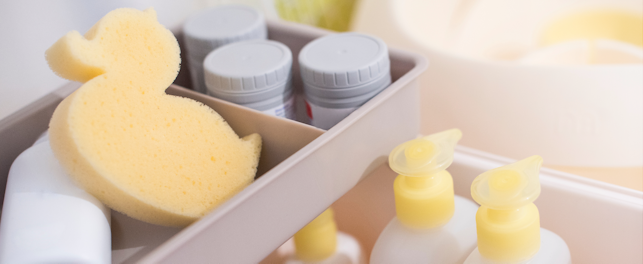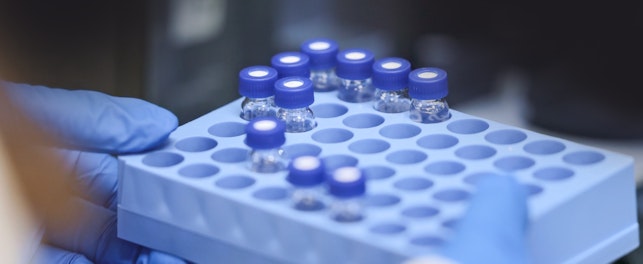Dishwashers are now an integral part of many people’s lives. While they are designed to make our lives easier, this is only true if the detergents we use are effective at removing stubborn foodstuffs.
Automatic dishwashers (ADWs) have long been popular in Europe and North America, but the sector is now seeing considerable growth in India and China.1 The 2020 COVID-19 pandemic has accelerated this trend, with reports from around the world detailing a desire for greater convenience during lockdowns.2 By 2027, it is predicted the global market will be worth USD 6.1 billion.3
Dishwasher Detergents
To efficiently clean kitchenware, an ADW must be used in combination with an effective detergent. Globally, similar rates of growth are being seen in the dishwasher detergent market as they are in the ADW market. In 2019, it was estimated the market was worth USD 18 billion but, by 2025, this is predicted to have risen to USD 22.4 billion.4 The market for dishwasher detergents is buoyant but manufacturers will only be able to build customer loyalty in their brand if they can prove that it is effective at getting cutlery and crockery clean.
Essentially, a dishwasher detergent should perform four tasks. It should:
- Release food residue (soil) from the cutlery and crockery
- Disperse soils in the wash solution
- Complexing residual water hardness and hardness ions from food residue
- Treat dishes, glassware and cutlery gently to avoid damage5
To achieve these results, a detergent will contain five basic ingredients:
- Alkalinity carriers
- Complexing agents
- Bleaching components
- Bio-agents (enzymes)
- Surfactants
Performance Testing
Consumers will only have trust in a brand, and therefore re-buy their products, if the detergent they buy performs as advertised. For manufacturers, this means performance must be tested. Since consumers don’t use dishwashers under laboratory conditions, the tests manufacturers use must accurately replicate real-life use.
In real-life, ADW and dishwasher detergents will be asked to clean a wide variety of food residues, including mixtures of different ingredients (fats, oils, cheese, rice, potatoes, sauces, herbs, etc.). These will also be prepared in various ways – fried in a pan, baked in a casserole dish, or boiled in water. The manufacturer should also not forget convenience foods that may contain different ingredients to keep them edible during transportation and storage. Each food, the combination of ingredients, and the way they are prepared, will leave a different type of residue that the detergent must be able to clean.
What to Test?
A quick online search shows that one of the primary problem foodstuffs for home chefs is eggs. Many forums have threads that cover the unpleasant eggy smell that a contaminated pan will pass on to all the other pieces in a dishwasher.6 In fact, the smell issue may actually be a chemical change brought about by overcooking the egg in the ADW.7 Dishwasher detergents must, therefore, be capable of removing egg residue without contaminating other utensils. This is an important foodstuff to consider because, in a recent UK study, 100% of respondents used eggs at least once a month and over 75% used them more than once a week.
Another problem foodstuff is minced meat. The same study found that 90% of respondents used minced meat more than once a month. This is prepared in a variety of ways and often with ingredients including potato, cheese and oil/butter.
When respondents were quizzed about their detergent and its ability to clean these foodstuffs, 70% reported that their detergent was incapable of cleaning egg from a saucepan after the preparation of scrambled eggs. A similar failure rate was also reported for frying pans. There was also a major problem when it came to the removal of minced meat from oven dishes, cooking utensils and plates.
To create a meaningful test for dishwasher detergents, it therefore makes sense to use scrambled egg and minced meat as standardized soils. Since minced meat is often prepared with potato, cheese and oil/butter, it is therefore valid to use a recipe that replicates a dish with these ingredients, such as a gratin.
Simply using a random recipe for these dishes will not, however, give manufacturers a clear understanding of the performance of their detergent. For the results to be meaningful, the test soils must be standardized, simple to apply, discriminative, relevant to the consumer, and reproducible wherever they are applied.
SGS solution
In response to the feedback from consumers and the demands of industry, SGS has developed new soils that replicate scrambled egg and minced meat, in the form of gratin. Following exhaustive evaluations, they have been shown to be easy to prepare, relevant to real-world use, and they provide more discriminative results than the current soils.
Performance testing using the new soils for scrambled eggs and gratin are providing dishwasher detergent manufacturers with greater consistency in their results. This is allowing them to develop better detergents that are building customer trust and therefore allows the manufacturer to grow their market share. After all, a product is only trusted because it’s tested.
Learn more about SGS’s Detergent Testing services.
For more information, please contact:
Bianca Nerowski
Division Manager Lab Operations, Cosmetics, Personal Care & Household
Connectivity and Products
t: +49 6128 744 278
References
1 Global Dishwasher Market Report 2021-2027: Product, Application, Distribution Channels, Regions, & Company Analysis
2 Lockdown spurs high demand for dishwashers & Pandemic Amplifies Desire for Cleaning, Drying, and Convenience in the Kitchen, Study Finds & Laundry use down and dishwashing up in lockdown, research reveals
3 Global Dishwasher Market Report 2021-2027: Product, Application, Distribution Channels, Regions, & Company Analysis
4 Dishwashing liquid market value worldwide from 2017 to 2025 (in million U.S. dollars)
5 Methods for ascertaining the cleaning Performance of dishwasher detergents (part A)
6 Normal for a dishwasher to stink every time there's items with egg? & Egg In Dishwasher Issue
7 When You Overcook Eggs, You Turn Them Into Chemical Weapons








